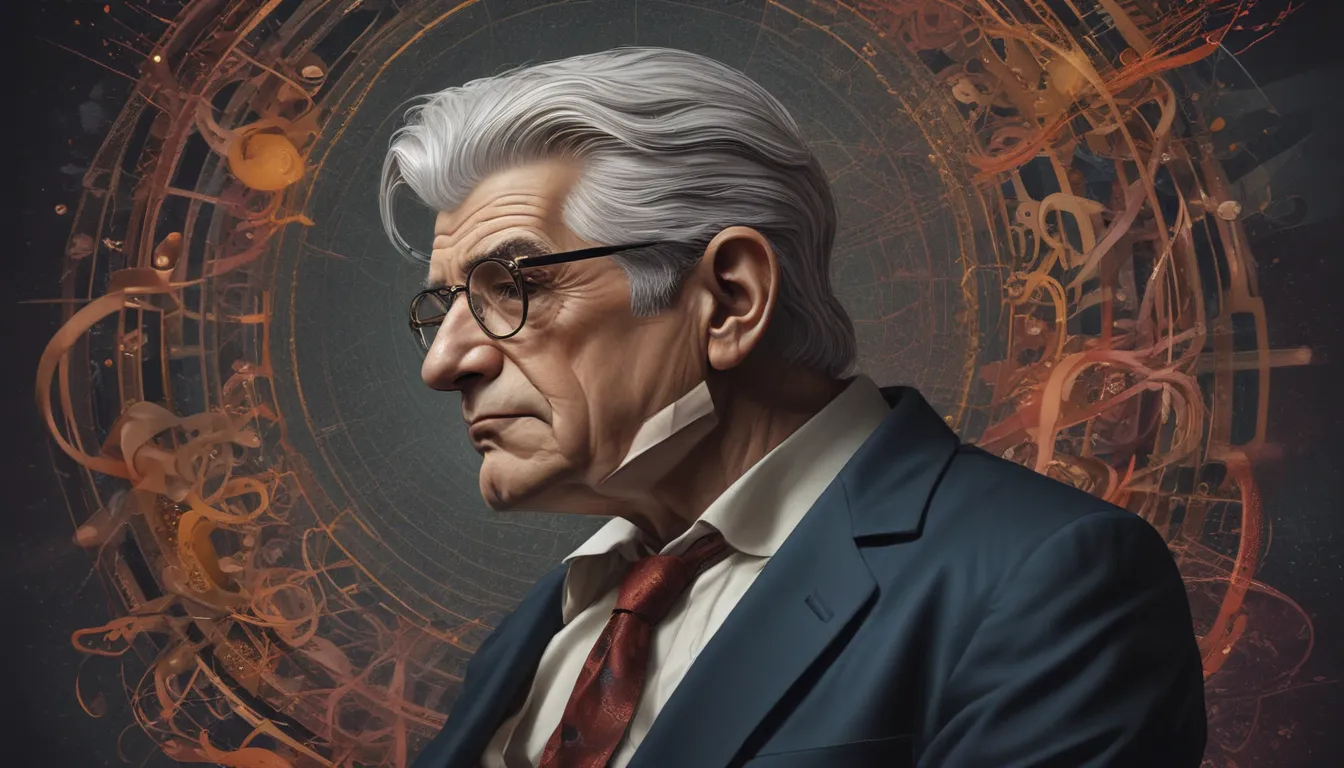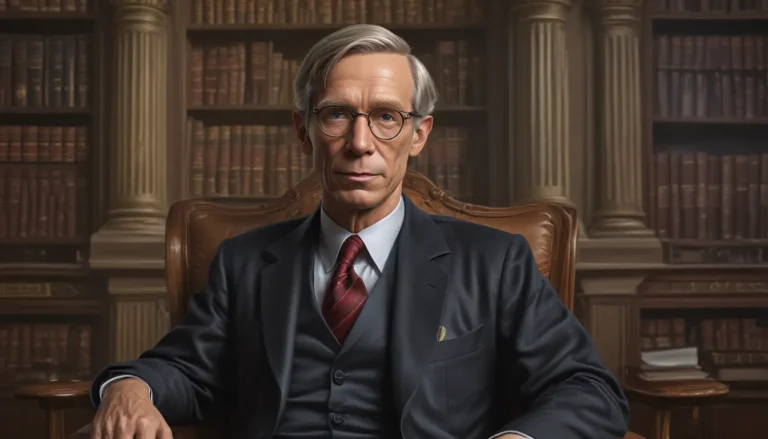The images in our articles may not match the content exactly. They are used to grab your attention, not to show the exact details in the text. The images complement the text but do not replace it.
If you’re fascinated by the enigmatic world of psychoanalysis, then Jacques Lacan is a name that you cannot ignore. A French psychiatrist and psychoanalyst, Lacan revolutionized the field with his unique contributions to the theory and practice of psychology. Delving into his life, works, and enduring impact on psychology can provide valuable insights into the complexities of the human mind and behavior. In this article, we will unravel 13 intriguing facts about Jacques Lacan, shedding light on his groundbreaking theories and the profound influence he has had on the field of psychoanalysis.
Key Takeaways:
- Jacques Lacan’s ideas, such as the “mirror stage” and the concept of the “Other,” have fundamentally changed our understanding of the human mind and continue to inspire psychologists and thinkers today.
- Lacan’s emphasis on language and interpretation has not only revolutionized psychology but has also influenced diverse fields like literature, philosophy, and cultural studies.
The Life and Legacy of Jacques Lacan
Born in Paris in 1901, Jacques Lacan’s early years in the bustling city played a vital role in shaping his intellectual development and his later work in psychoanalysis. Renowned as one of the most influential figures in the field of psychology, Lacan drew inspiration from the pioneering work of Sigmund Freud. Deeply influenced by Freud’s theories of the unconscious, Lacan sought to build upon them by introducing his own unique concepts and interpretations.
The Mirror Stage and the Concept of the “Other”
One of Lacan’s most seminal contributions to psychoanalysis is his formulation of the “mirror stage.” This groundbreaking concept suggests that infants develop a sense of self by identifying with their own reflection, marking a crucial step in their psychological development. Additionally, Lacan introduced the concept of the “Other,” which represents the external world and plays a pivotal role in shaping an individual’s identity and desires.
The Role of Language in Lacan’s Work
Central to Lacan’s theories is his profound emphasis on the importance of language. He argued that language is not merely a tool for communication but a deeply symbolic system that molds our thoughts, desires, and perceptions of reality. By highlighting the intricate relationship between language and the unconscious mind, Lacan offered a fresh perspective on how language shapes our understanding of ourselves and the world around us.
Controversy and Debate in the Psychoanalytic Community
Lacan’s unconventional interpretations and unorthodox methods sparked controversy within the psychoanalytic community. His ideas challenged traditional psychoanalytic conventions, leading to heated debates and divisions among his colleagues. Despite the polarizing nature of his work, Lacan’s theories continue to provoke thought and debate in the field of psychology.
The Establishment of the École Freudienne de Paris
In 1964, Lacan founded the École Freudienne de Paris, a prestigious institution aimed at fostering the exploration and dissemination of his innovative ideas and theories. The school served as a hub for intellectual discourse and collaboration, further solidifying Lacan’s legacy in the field of psychoanalysis.
The Multifaceted Impact of Lacan’s Work
Beyond the realms of psychology, Lacan’s ideas have permeated diverse disciplines such as literary theory, linguistics, philosophy, and cultural studies. His unconventional approach to therapy, which incorporated language, symbolism, and interpretation, offered a unique perspective on understanding the complexities of the human psyche.
Jacques Lacan’s Intellectual Legacy
Jacques Lacan’s profound impact extends far beyond the confines of traditional psychology. His distinctive approach to conducting seminars, characterized by intellectual rigor and a blend of philosophy, literature, and psychoanalysis, has left an indelible mark on contemporary thought. He believed in the power of interpretation and the importance of uncovering hidden meanings behind symbols and language to gain insight into the intricacies of the human mind.
Conclusion
In conclusion, Jacques Lacan stands as a towering figure in the realm of psychoanalysis, revered for his innovative theories and challenging of conventional wisdom. While his intricate concepts may pose a challenge to some, there is no denying the significant influence Lacan has had on our understanding of the human mind. His exploration of the mirror stage, the role of language, and the complexities of human desire continue to inspire psychologists, scholars, and thinkers today, underscoring the enduring relevance of his work in shaping modern thought.
FAQs
-
Who was Jacques Lacan?
Jacques Lacan was a pioneering French psychoanalyst and psychiatrist known for his groundbreaking theories and concepts in the field of psychology. -
What are some key concepts in Lacanian psychoanalysis?
Key concepts in Lacanian psychoanalysis include the mirror stage, the symbolic order, the role of language in identity construction, and the unconscious as structured like a language. -
How did Lacan contribute to the field of psychoanalysis?
Lacan made significant contributions to psychoanalysis by reinterpreting Freudian concepts, emphasizing the role of language, and exploring the unconscious mind’s impact on human experience. -
Is Lacanian psychoanalysis widely accepted?
Lacanian psychoanalysis remains a subject of debate and controversy within the field. While it has garnered a following among certain practitioners and intellectuals, it is not as universally embraced as traditional Freudian psychoanalysis. -
Who can study Lacanian psychoanalysis?
Studying Lacanian psychoanalysis typically requires a solid understanding of Freud’s theories and a willingness to engage with complex philosophical and linguistic concepts. It is primarily pursued by professionals and academics in the fields of psychology and philosophy.
Dive deep into the intricate world of Jacques Lacan and discover the profound impact of his theories on contemporary thought. As you explore the nuances of psychoanalytic theory, consider delving into the fascinating world of Dennis Bergkamp and Tito Puente to broaden your intellectual horizons and deepen your understanding of influential figures in their respective fields. Join us on a journey of discovery and exploration as we unravel the complexities of the human psyche and the enduring legacy of visionary thinkers like Jacques Lacan.






